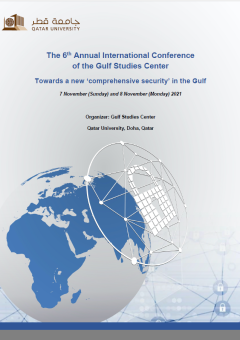Rationale
Since the beginning of the 21st century, the Gulf region has encountered multiple new and old security challenges of different natures. Among others, these challenges included:
- Intermittent political unrest provoked by the events of the 2010 – 2011 Arab Spring
- Socio-economic grievances caused by domestic mismanagement, structural problems and corruption
- Rise to power of non-state actors that challenged the existing governments, borders and regional order
- Traditional inter-state conflicts driven by old feuds
- Regional proxy wars fueled by some power ambitions to shape the future of the Gulf
- Sanctions and economic blockades imposed both from inside and outside of the region
- Growing food, water and energy insecurity that is directly connected to long-neglected environmental issues of the region
- Transformation of oil and gas markets that negatively affects the volume of revenues ensuring socio-political stability of Gulf states
- Finally, the outbreak of the COVID-19 pandemic reminds the Gulf on the necessity to ensure health and social security for both expats and nationals.
This list of issues faced by the region within the last twenty years is incomplete and can be continued. Yet, it already demonstrates that the Gulf – considered here as the six GCC states, Iran, Iraq and Yemen- is far from being secure. Existing threats are diverse in nature and capable to affect both domestic politics, state-society relations, economic development and foreign policies of every Gulf state. What is more important is that the existing diversity of the nature of threats makes classical approaches towards regional security obsolete and often inapplicable of searching for potential answers to existing challenges: the majority of traditional approaches are based on hard power and military deterrence doctrines and cannot deal with the new set of multi-dimensional threats.
Under these circumstances, the top priority of the 6th Annual Conference, organized by the Gulf Studies Center, is to discuss original approaches that may address the wide range of threats faced by the Gulf countries starting with traditional military security challenges and ending with the latest issues such as environmental, health, economic, food, water, energy, human, and cyber security challenges. Applicants are welcome to submit Gulf-related contributions in any of the five broad areas listed below:
- Military security
- Political security
- Economic security
- Societal security
- Environmental security


